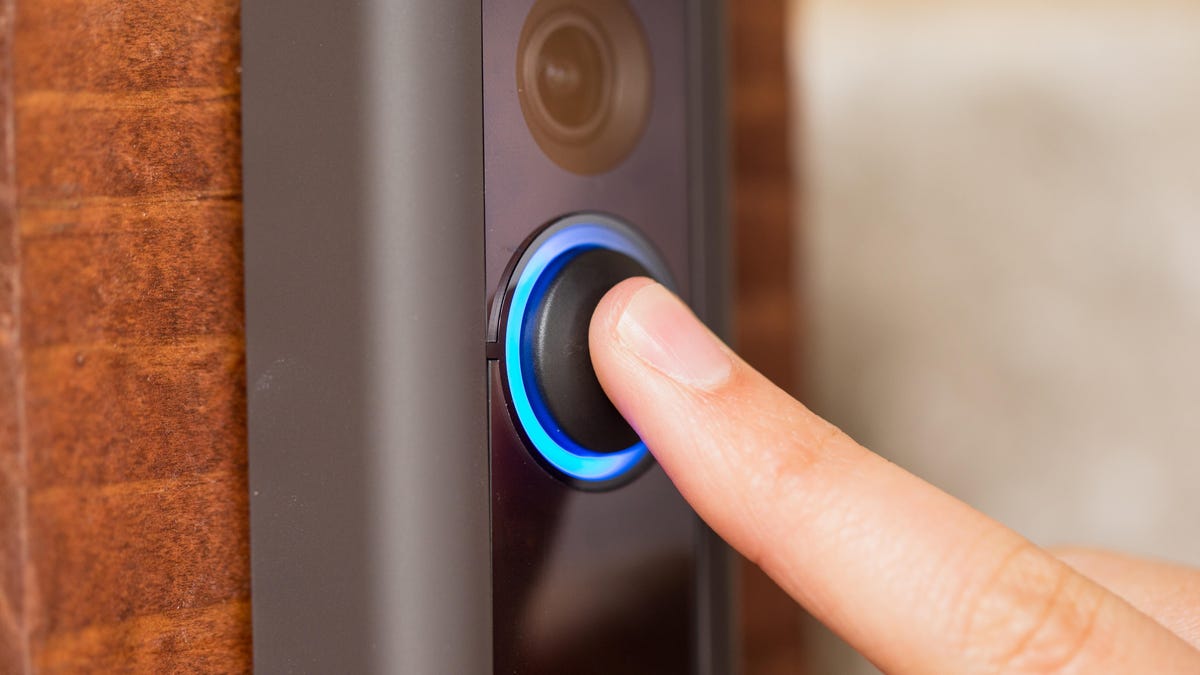Amazon's Ring takes heat for considering facial recognition for its video doorbells
Two patent applications from the company describe identifying "suspicious" people then automatically alerting police.

A Ring video doorbell, which currently doesn't use facial recognition software.
Ring, Amazon's video doorbell company, filed two facial recognition-related patent applications this year that have already been criticized in regard to civil liberties.
The company, which Amazon acquired in April, filed two patent applications that became public in recent weeks. Both consider ways of using Ring's devices to recognize "suspicious" people in a neighborhood and then automatically alert law enforcement. Such people are described as convicted felons, sex offenders or people on a "most wanted" list.
Ring's doorbells don't currently use facial recognition software to detect specific people. Google's Nest Hello video doorbells already include facial recognition software to detect friends and relatives, but they don't include connection to law enforcement.
Amazon representatives didn't respond to a request for comment but told The Washington Post that Amazon regularly files forward-looking patent applications that consider new, potential tech. The spokesperson added that patent applications don't necessarily reflect development plans.
The applications raise fresh concerns about tech companies' early use of facial recognition software. The American Civil Liberties Union has repeatedly criticized the technology's use, in particular by Amazon, saying it could create an unjust surveillance state that could target political activists and those unfairly deemed a threat to the public.
The applications aren't the only controversial pieces of paperwork to come out of the US Patent and Trademark Office this year. For instance, Walmart was criticized in July for gaining a patent to eavesdrop on shoppers and employees in stores. The new concept hasn't been implemented in Walmart stores and Walmart didn't say whether it ever would be.
The ACLU this week raised concerns about Ring's patent applications.
"Amazon is dreaming of a dangerous future," the ACLU's Jacob Snow said in a statement, "with its technology at the center of a massive decentralized surveillance network, running real-time facial recognition on members of the public using cameras installed in people's doorbells."
In late November, CNN reported on one of the applications, which pertained to creating composite images of someone's partially seen face using multiple cameras. There's a second application with similar language included that involves using Ring devices to communicate with police.
In one of the filings, Ring lays out how the facial recognition alert would work:
A video may be analyzed by an A/V recording and communication device that recorded the video (and/or by one or more backend servers) to determine whether the video contains a known criminal (e.g., convicted felon, sex offender, person on a "most wanted" list, etc.) or a suspicious person. Some of the present embodiments may automatically submit such a video stream to the law enforcement agencies.
CNET's Holiday Gift Guide: The place to find the best tech gifts for 2018.
'Alexa, be more human': Inside Amazon's effort to make its voice assistant smarter, chattier and more like you.

